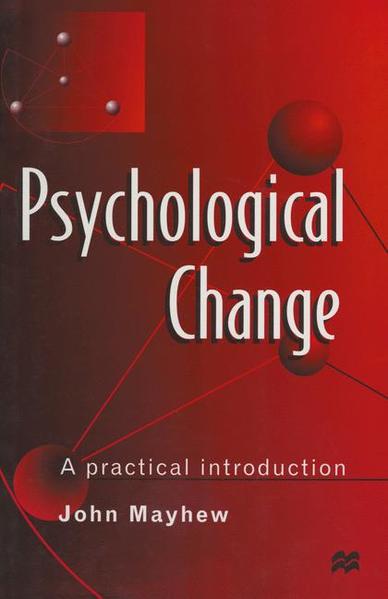
Zustellung: Do, 10.07. - Mi, 16.07.
Versand in 3-4 Wochen
VersandkostenfreiBestellen & in Filiale abholen:
Psychologists have long sought to understand and explain human change and development. In applied psychology there are three dominant approaches which have been particularly influential - humanistic, psychodynamic and behaviourist. Psychological Change introduces these models and, through the use of examples and case-studies, demonstrates how the theory can be related effectively to practice. It will appeal to students studying applied psychology within health studies, nursing, social work and psychology courses as well as to a wide range of practitioners working in the caring professions.
Inhaltsverzeichnis
Introduction.- PART 1: INTRODUCTION TO HUMANISTIC PSYCHOLOGY.- Person-centred Therapy.- Personality and the Self-concept.- Motivational Processes and Child Development.- Psychological Development and Psychological Health.- Basic Themes in Humanistic Psychology and Links with the Introduction.- Further Reading.- PART 2: INTRODUCTION TO PSYCHOANALYSIS.- Psychoanalytic Therapy.- Self-analysis.- Psychoanalytic Approaches to Child Development.- Freud's Theory of Personality.- Basic Themes in Psychoanalysis and Links with the Introduction.- Further Reading.- PART 3: INTRODUCTION TO BEHAVIOURISM.- Cognitive Therapy.- The Behaviourist Approach to Personal Change.- The Behaviourist Approach to the Problematic Behaviour of Children.- The Experimental Foundations of Behaviourism.- Basic Themes in Behaviourism and Links with the Introduction.- Further Reading.- Comparisons between Humanistic Psychology, Psychoanalysis and Behaviourism.- References.- Index.
Mehr aus dieser Reihe
Produktdetails
Erscheinungsdatum
24. Februar 1997
Sprache
englisch
Auflage
1997
Seitenanzahl
268
Reihe
Bloomsbury 3PL
Autor/Autorin
John Mayhew
Verlag/Hersteller
Produktart
kartoniert
Gewicht
345 g
Größe (L/B/H)
216/140/15 mm
ISBN
9780333654316
Entdecken Sie mehr
Bewertungen
0 Bewertungen
Es wurden noch keine Bewertungen abgegeben. Schreiben Sie die erste Bewertung zu "Psychological Change" und helfen Sie damit anderen bei der Kaufentscheidung.

































